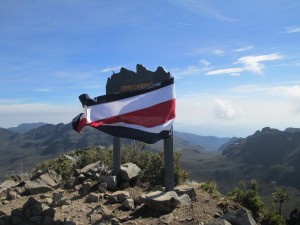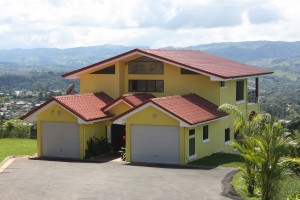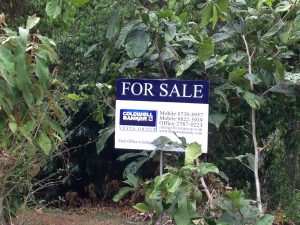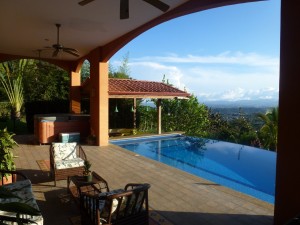If you’re considering a move towards Costa Rica expat living, or just an investment in Costa Rica, you might be wondering, which is better for Costa Rica living – mountains or beach?
Like a lot of people out there, I love both. But are both really possible?
Not really. Not if you’re talking about “real mountain living” versus “real beach living.”
I live in the town of San Isidro de El General, which is nestled in the valley between the towering Talamancas, Costa Rica’s highest mountain range, and the southern Pacific coast. I like to think that I have both, but in reality I am far removed from beach culture and it does take me anywhere from 45 minutes to an hour to get from my front door to the ocean. So, while I am close, I ain’t quite there.
And if it’s not possible to have both here in San Isidro, it’s not really possible anywhere else. So, one has to make a choice. And this post is about helping you make that choice.
Since I do my Costa Rica expat living in the mountains and perhaps I am a little biased in favor of mountain life, I’ll start with…
Costa Rica Expat Living at the Beach
Pros…
Costa Rica boasts some of the best beaches imaginable. The surfing can be great, with waves for beginners, intermediate level and the true experts looking for the biggest, gnarliest rides out there. The beach culture is also a big plus for some. It’s more laid back and bohemian. Since the beach has long been the most popular area for expats to buy into, you can find a unique blend of gringo and tico culture co-existing down there. There you can find things you won’t find up in the mountains, which will be dominated by more of a traditional Costa Rican culture. Things like health food stores, international cuisine, funky bars and discos, lots of “hippie stuff”, etc., etc. All that can be pretty cool and it draws many down there.
Here in the southern zone there is a smaller mountain range that more or less hugs the coast. So, it is possible to live up around 300 or 400 meters above the sea level, where you get spectacular ocean views and sunsets and cool ocean breezes. The flora and fauna along the coast, especially the southern Pacific, is dense tropical rain forest. So, there are a lot of critters lurking in there and it’s not surprising to wake up to the sound of monkeys playing in your backyard.
Sound enticing? Ok, but then there are the…
Cons…
The biggest drawback for most is the heat. It is hot, really hot, at sea level in Costa Rica. It’s true you always have the ocean, or your pool, to cool off in, but get ready for any trip to the market, or anywhere else, to leave you drenched in sweat.
The other aspect that could be a drawback for some, like me, is the unique culture that generally forms where you have a large group of foreigners congregating in a particular area of a foreign country. They tend to try to create a culture of their own. Here on the southern Pacific, Dominical is a great example. Dominical no longer resembles Costa Rica. For one, you’ll see more foreigners down there than locals. The businesses that have opened, while many are super cool for sure, just aren’t tico. And the prices are sky high as a result. At the beach expect to pay a hefty premium for just about everything, especially all that cool stuff!
There can also be a bit of a rift that forms between the ticos and the expats. This is usually lurking beneath the surface and is not readily apparent to the tourist only visiting for a few days. But if you live there, you’ll begin to notice. Sometimes this can result in bad things happening, like home break-ins and even violence. I don’t mean to be overly alarmist with this, but you have to understand that this is understandable when outsiders from other countries move into an area, jack up the price of everything, and thereby make life for the locals more difficult. Resentments can obviously develop as a result. Mutual respect is the key to avoiding this, but sometimes it is not given.
Costa Rica Expat Living in the Mountains
Pros…
If you love mountains like I do, then you’re really going to love Costa Rica’s mountains. Unlike mountains in colder climates, Costa Rica’s are teaming with flora and fauna, of a different variety than what is found along the coast. Heck, just take a trek up to the summit of Chirripo, Costa Rica’s tallest mountain at around 12,500 feet. You will pass through virtually every eco-system that exists within the country, from tropical rain forest, to cloud forest, to the semi-barren desert-like eco-system known as the paramo, which exists well above the tree line in tropical climates. I love the beauty of Costa Rica’s lush green mountains. Even as a lifelong surfer who grew up on the Carolina coast, the mountains of Costa Rica are what drew me here and are what keep me here.
Even though in Costa Rica’s mountains you’re not “at the beach”, you’re still not far from it. I stare up at the Talamancas each morning, but also know that I can hop in my car and be sitting on my surfboard waiting for the next long barrel in less then an hour.
In addition to the natural beauty, I love the traditional tico culture that thrives in the mountains. That hardy, yet warm and gentle, culture is nowhere better represented than my home here in San Isidro de El General, in the canton, or county, of Perez Zeledon. Here the people are for the most part farmers and laborers and must rank as some of the most friendly people on earth. Costa Ricans in general, throughout the country, have that reputation and the ticos of this valley are certainly prime representatives.
With the mountains come rivers, waterfalls, little nooks and crannies where you can rejuvenate in the crystal clear and cold, but not too cold, fresh water.
The weather in Costa Rica’s mountains is about as perfect as you will find on the planet. I am talking low to mid 70’s, with little to no humidity. Down in the valley it can get quite warm, still no where near as hot as the beach, but warm. However, just drive less than 30 minutes up and it’s a whole different story. Many folks come here to live at the beach, but after a year or so, make a b-line to the mountains in order to escape the oppressive beach heat.
Prices of things are lower in the mountains. San Isidro de El General is a great example. This “little town” is actually Costa Rica’s second largest outside of the metropolitan area, or GAM, of the central valley. Here you can find anything you need and at pretty good prices. And that certainly holds true for real estate, both in terms of land, homes, and the cost to build.
OK, OK, I’m beginning to show my bias, so let’s talk about the…
Cons…
I guess the biggest one is that the mountains aren’t the beach. Except in certain rare cases, you won’t get ocean views. You will have to drive a ways to get to the beach, perhaps further than some would like. The culture of the mountains is more traditional tico, not the “fusion culture” discussed above that the beach environment gives rise to.
During the rainy season, which lasts 7 months out of every year, from May through November, the clouds and rain come every afternoon. And it all starts in the mountains. In fact, the mountains act as a bit of a buffer to hold the clouds and rain back for a time before they finally reach the beach later in the day. So, in the mountains you will tend to get more clouds and more rain.
If you get up high enough, the mountains can get downright cold at night. Even cold enough where a nice cozy fireplace can be a very good idea. That might be a drawback for some people…certainly not for me.
So, there you have it. My two cents of opinion on the pros and cons of Costa Rica expat living mountains or beach. I’ll let you make up your own mind about which version of Costa Rica expat living is right for you.










